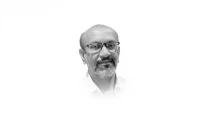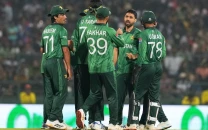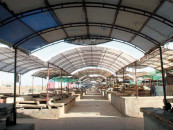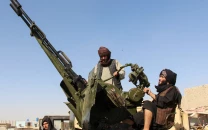Quarter of a million souls
The kids in Yemen may not live long to tell us how wrong we were

The writer is a Howard Hughes Medical Institute professor of biomedical engineering, international health and medicine at Boston University.
He tweets @mhzaman
But it gets much worse — for we are a party to the destruction of Yemen and its people. Not only are we complacent, we are also complicit.
The battles in Yemen are rooted in drought, lack of resources, mismanagement, tribal warfare and most recently aggression by Saudi-led forces. Last week, it took a bloody turn with the Saudi and UAE forces putting the only viable port, Hudaydah, in its crosshairs. One of the most densely-populated parts of the country, Hudaydah is the only viable route for humanitarian supplies for millions. The UN estimates that should Hudaydah port become unviable, due to conflict, nearly quarter of a million people would perish. Further, eight million people would be facing starvation. That is more or less the population of Lahore. These are not mere numbers or statistics, these are people, like all of us, who have been wronged and who will be consumed by the war machine that we all are party to.
My colleagues in humanitarian agencies and Doctors Without Borders (MSF) speak of unimaginable tragedy, with no end in sight. Last week, the MSF cholera treatment facility in Abs, one with a clear MSF sign on the roof, was hit by a Saudi-led bombing and destroyed, resulting in MSF halting activities in the region. Numerous other pillars of the already fractured health system have been destroyed, making everyone even more vulnerable.
Pakistan and Pakistanis are party to this calamity. For one, the Saudi-led forces are led by a Pakistani, who led the military at the highest level. That should give us a serious pause for a second. We need to put the smiling pictures of our former leader inside the gilded Saudi palace next to the starving children for comparison. Second, parliament failed to tell the public the reason a contingent of our military were sent to Saudi Arabia in February 2018. Third, scholars, observers, editors and journalists have not put the necessary pressure on the government to clarify its stance on the crisis. This point cannot be overstated. Media houses across the world, including in the US, have taken a position that has questioned the role of different countries and the immoral stance that has led to suffering and destruction. The Washington Post called America complicit in the suffering and possible famine of the Yemenis. The New York Times and its leading journalists have consistently highlighted the plight of the Yemenis and asked tough questions about the so-called coalition and its desire to destroy the country. Our editorial boards, journalists, TV anchors and pundits have largely kept mum — and have not brought the issue to the general public. Petrodollars should not buy our conscience or our morality. The kids in Yemen may not live long to tell us how wrong we were, but history will neither forgive, nor forget.
Published in The Express Tribune, June 19th, 2018.
Like Opinion & Editorial on Facebook, follow @ETOpEd on Twitter to receive all updates on all our daily pieces.














COMMENTS
Comments are moderated and generally will be posted if they are on-topic and not abusive.
For more information, please see our Comments FAQ